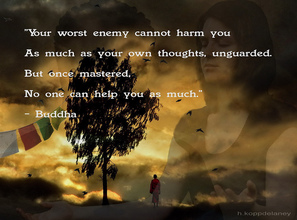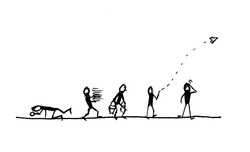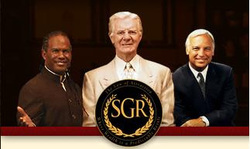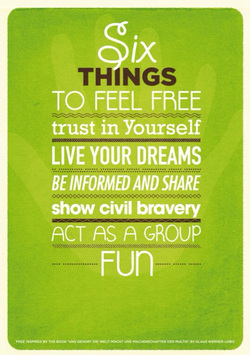 Self-Esteem. Is this a dreaded or a welcome phrase? What does it mean to you? In this blog post, I will give my definition, why it may be dreaded, what place it plays in your past, what part it plays in your present, and what part it can play in your future. To me, self-esteem, is literally as it says: how you esteem yourself. Another way to look at it is how you view yourself and what you're capable of. It's not necessarily how you WANT to feel about yourself, though that can play a part in it, it's how you really FEEL about yourself. How do you think about yourself, if you ever DO think about yourself. Many people don't like this phrase because it's so illusive. I mean, how do you really know how your self-esteem is? It's also changing depending on new events in your life. You may feel like a wonderful spouse and then you have a child and your self-esteem as a parent is different than the self-esteem as a spouse. Also, many people don't like this phrase because they just really aren't sure how they think or feel about themselves. Maybe you are more concerned about how others feel and what others think about you. Self-esteem is measured differently as a child than it is as an adult. As a child, your self-esteem may be high because you play ball well or are a good friend. This doesn't really translate the same as an adult. I mean, there are similarities, but it's not the same. Self-esteem is often better before we are aware of how many mistakes we actually make.In the present, you may be a good spouse or a good parent. You may be a good sports player or seamstress. You may simply realize that you are a human BEING instead of a human DOING and love yourself for that. You may enjoy being by yourself or rather be by others, and not contemplating your owns self. You may think the world of yourself, think that you're worse than dirt, or something in between. Your self-esteem can determine your success: financially, in relationships, career-wise, health-wise. If you have a hard time loving yourself, maybe you subconsciously won't feel worthy of financial success and will never achieve it. If you don't learn to love yourself, it may be hard for someone else to truly love you. You may not really know who you are, and may choose the completely wrong career for yourself and not know how to change it. If you don't believe in yourself, you may get in bad shape and have health problems that you can't get out of. In fact, this may be your present, instead of your future. The more you think and feel about yourself, the more you're able to be successful in all areas of life. Self-esteem is actually a lot more a part of all of our lives than we realize. You may not realize that your self-esteem may be blocking you from obtaining your dreams. It may not be, but it may also be doing so. Maybe that's why you keep hitting the wall - not able to get over it.Basically, self-esteem is the way we look at ourselves. It can be different in the past, present and future, but does ultimately effect us. Having more self-esteem can mean more success in all areas of life.If you need a little help with your self-esteem, I can help you understand you and hopefully raising your self-esteem. Give me a try - I DARE YOU! Lisa StarrLife/Corporate Coach[email protected]
 This is a paraphrase from Dale Carnegie in the How to Win Friends and Influence People book that's been around for almost a century. In this post, I'll talk about what I mean and why it is the case as well as tell stories of the truthfulness of this. Think about your name. Your first, middle, last, maiden, married - whatever you like best. Why do you like it most? What does it mean to you? What if someone pronounces or spells it incorrectly?I know that we are all a little attached to our names. Now, my name is my married name, but I think it's pretty cool to have a noun for a last name. One time when a person heard my full name (oh, it was a radio game I played), they said it sounded l could be in adult videos. Nonetheless, it's still my name and I plan on keeping it for the rest of my life. Think about others' names. I'm sure you've heard someone's name that has been hard for you to pronounce. Many times, people living in a different country than they were born have nicknames, so people can call them something similar. If YOU have one of those hard-to-pronounce names, how does it feel to have someone call you by your REAL name? I bet pretty good. I had a friend, OK, it was a guy I had a crush on in college, who always seemed to make it a point to learning peoples' hard to pronounce names. I think he endeared himself to others by simply trying to learn someones' real name. I admired that about him and have tried to do the same ever since.I am an apartment manager as well as a coach, and there was one man who applied for an apartment who called himself George. Turns out his real name was Jorge (pronounced "Horhe"). Think about those two names - they may be the same in two different languages, but they just don't feel the same when you say them. Try it.All I'm saying is that we all love to be called by our REAL names. I think, just by other people trying to know us a little more, it makes us want to get to know them a little more.I dare you - go up to someone who has a hard to pronounce name and ask them how to pronounce and spell their name. Ask them its origin. You will make a new best friend.Lisa Starr Life/ Corporate Coach[email protected]
 This belief is from Bob Proctor, as well as other greats like James Allen, Napoleon Hill, Ernest Hemingway, Rhonda Bryne and others. There are many things great philosophers of the past and present differ on, but the fact that "thoughts become things." I know the book and movie The Secret mentions this this. I've also heard it put like "when you change the way you look at things, the things you look at change." There are so many ways to say the same thing. The premise behind this is that whatever you think about most often is what you become. Not literally, like if you think about girls most often, you become a girl or if you think about cars most often, you become a car. What I mean is that if you think about pleasing people most often, you become a people-pleaser. If you think about work most often, you become a good employee. I'm not saying these are bad things, but these may or may not be what you REALLY want. Other things that you may not think about is, if you think about debt most often, what do you remain? A person in debt. If you worry about death, what may happen to you? You may die an early death. On the other hand, if you obsess over being a millionaire, what are you more likely to become? A millionaire. This may sound weird, but it's true to some extent. If you want a large house on the hill or a trip to Hawaii, start focusing on that. I'd recommend that whenever you think about something you DON'T want, like debt or your current job, change your thoughts to something you want instead, like more money or a better house. You know what you want and don't want, but you do. Focus more on what you want rather than what you don't want, since the Law of Attraction works both ways. If you need help with learning how to think most effectively, please shoot me an e-mail.Lisa StarrLife/Corporate Coach[email protected]
 Many people talk about goal setting and goal achieving. What is the best way to write goals? Why do we write goals? How do we achieve these goals? First of all I want to state why Bob Proctor says we should make and achieve goals. This surprised me when I first heard it. We achieve goals to raise the consciousness. The best goals set are the ones we have to work and stretch to achieve. If we already know how to get the goal we are shooting for, there will be no growth or increase of awareness. It is not to acquire more. We can do THAT without goals. I LOVE this quote by John Ruskin is "The highest reward for a person's toil is not what they get for it, but what they become by it. THAT is the key in a nutshell! Secondly, HOW do we achieve goals? Well, for one thing, understand that all goals, or non-physical seeds, have a gestation period just like the physical seeds (like corn, potatoes, etc.). Your goal will be achieved as soon as that gestational period has elapsed. It's also important to NEVER change the goal, until you reach it. You can change the plan to get there or the time it takes, but if you change goals, it will take longer. For another thing, you have to SEE yourself already in possession of your goal and seriously want it. That will give you the energy to do what needs to be done. Also, picture your goal like stairs. It takes many steps to get your goal and takes perseverance. One of the most important things is to feel good during, before and after every step you take There's SO much more to learn, but at least this is a start. If you want more information, either go to Bob Proctor's website or e-mail me to explain.Lisa StarrLife and Corporate Coach[email protected]
 One of the first things I remember hearing Bob Proctor say that really struck me was the phrase above. He was stating this in relation to positive affirmations, or maybe it was in relation to your future gratitude list. Either way, it could also be a way to help you feel better about life. The gratitude list is a combination of what I learned from Bob and what I learned from The Greatest Gift (book & made into a movie). What I do daily is write a list of 10 things that I am happy and grateful for in the future. I then feel truly happy and grateful as if I have the things I want in physical form. Yet, as Bob Proctor says, if I believe these dreams NOW, I HAVE them now emotionally and physically and it is only a matter of time until I get these goals in physical form. From listening to Bob Proctor CDs often and thinking about them, his definition of thinking is thoughts that direct you toward your goal are REALLY thinking.Yes, there are many things we all don't have. There are many things we all want that many of us will never get/achieve. Yet, there are MANY things that we all have that others don't that we can be grateful for. Some of the simple things I'm grateful for each day are: my hands, so I can type and touch; my eyes, so I can see the good in others and in myself; my legs, so I can walk and exercise to keep me healthy; my ears, so I can work on truly listening to those I love; my hair, so I can keep the cold off my head and ears more than if I didn't have hair; my computer, so I can reach out to the world and help people; my family, the people I love and want to be with forever; my mind, so I can continually get better and better and closer to my dreams. What simple things are you happy and grateful for, whether personally or professionally? I'd love to hear it.Lisa StarrLife and Corporate Coach [email protected]
 This is another way to say, my dream. Yet, it isn't JUST my dream. It is my dream written out in every detail, read out loud by myself and put on a recording that I listen to at least once a day. This can either apply to your life or your business/job.
Why would I put that much effort into something that may or may not come true? So it DOES come true. Bob Proctor mentions that if you SEE and WANT a goal, whatever it is, those are the first steps to attaining any goal you want. Want a new car? See and want it. Want a million dollars? See it and want it. Want an AWESOME relationship? See it and want it. Want to loose weight? See it and want it. Of course, there are other steps, that Bob mentions on his Goal Achiever series, but this is a start.
Another thing about my script, is, as my dream changes, I also change the written description and verbally spoken picture of my dream in my mind. Bob Proctor recommends changing the written description and re-narrate your voice daily. This makes sure that when your subconscious mind leads you in the direction of your dream, and that it's the dream you truly want.
So, now that I've talked about your dream, how do you know what it is that you really want? Dream. Ask yourself two questions and see what comes flying out of your mind. These two questions are: 1. What if time and money were no object, what would you do with your time and your money? and 2. What would you do if you knew you could NOT fail?
I know that listening to My Script and rewriting and re-narrating it often helps me focus on my dream. It helps me to know what I really want, to know what I'm really working for.
I'd like to help YOU also have a life that you dream!
Lisa Starr
Life/Corporate Coach
 We all know our physical muscles/senses: touch, taste, hearing, seeing, and smelling. Yet how many of us know our mental muscles. These are the parts of ourselves that we often don't strengthen. Yet, if we do, our lives are a lot stronger, in various ways. I don't know how else to introduce them. Let's just delve into it. Our mental muscles are (drumroll): reason, imagination, perspective, memory and intuition. Now that I've mentione d them, think of how powerful these mental muscles are if we use them. They make our lives a whole lot richer. Reason is our thinking ability. This is what sets humans apart from the rest of the animal kingdom. There are other animals that talk, walk, use sign language and do many other things that we humans do. Yet, try to think of a single animal that can reason. I can't think of any, can you? Imagination is very powerful, as we can all agree. According to the Law of Attraction, it's your imagination that is a very important part of the creative process. What you imagine, if believed in and worked smart enough, YOU CAN ACHIEVE! Imagination is another word for visualization. Some would say that to imagine is the only real thinking. Perspective is a valuable asset. Writers and readers know the importance of perspective. For example, the book Wizard of Oz is a very different book than Wicked, which is also a very different story than The Great and Powerful Oz. Yet, the story and characters are pretty much the same, but the emphasis placed on different parts of the story, or different characters in this case. The more we are able to see others' points of view, the more we can get the whole picture. Memory is a mental muscle probably most forgotten. Many people say they have a bad memory, yet, memory is simply a muscle. If I don't have strong triceps muscles, generally I would do different exercises to strengthen that group of muscles. Why don't we think about strengthening our memory, though we probably know of others with Alzheimer's Disease or Dementia (common products of not strengthening that mental muscle)?Last and certainly not least is intuition. We probably use this more as a whole, without realizing it. Let's say a teenager walks into the door and a mother asks, "What's wrong?" and the teen says, "Nothing." It's the intuitive mental muscle that tells you there's something wrong in the first place. We learn many things in social settings based on our intuition. Sometimes our self-esteem is aided or hindered through what we feel intuitively is others' reactions to us. Now that you know that these mental muscles exist, if you didn't before, what do you do with that knowledge? I could tell you exercises to try, but why not think of some games yourself? It will be much more fun and will stick more in your head that way.If you still need help, feel free to e-mail me.Lisa StarrLife/Business Coach[email protected]
 OK, so the diagram Bob Proctor uses doesn't look like this, but I think this is funny. The diagram Bob Proctor uses looks more like a small stick person body with a large stick person head that's divided in half. He got the concept from a man named Leland Van Dewall, but the concept, as far as Proctor knows, is from a man named Thruman Fleet. So, picture the three parts: conscious mind, subconscious mind and the body. The conscious mind is what we know on the surface - what we think and reason about. It is where our free will lies. We are most familiar with this part of our mind. I like to also relate it to a book The Ant and the Elephant by Vince Pocente that I like to read. The ant is portrayed as the conscious mind in the book. It's the thinking and reasoning part of our personality. It is our thoughts, in a nutshell. The subconscious mind is like the second part of our personality. In a nutshell, the subconsious mind is our feelings. It is the elephant portrayed in the Ant and the Elephant. It is the part of us that is big and slow to change because it remembers everything that ever happened, the good and the bad. In our subconscious mind lies our paradigms, our deeply held beliefs. It is because of what goes on in our subconscious mind that sometimes we hit a "wall" that we can't break out of. The body is the "manifestation of what's going on in the mind" as Bob Proctor states. It is, in a nutshell, the actions we take, based on what's going on in our conscious and subconscious mind. If we're going to change, we need to know what's going on inside as well as what's going on outside, Proctor also mentions. The body takes us where our mind thinks we need to go. Our body is what everyone sees, the physical part of us. Basically, the more we understand about the three parts of our personality, the easier it is for us to change and become the person we'd like to become. We need all parts to help us in this effort. Every part of our personality has an important job to do, if you will, in getting us to be where we need to go.I hope this makes a little bit of sense. Either way, let me know if you need help understanding or have comments on this concept.Lisa StarrLife / Corporate Coach[email protected]
 Bob Proctor is the in the middle. I'll try to be careful as to how much I share, since I don't want to take away from his wonderful programs. I would consider him my biggest mentor, and I'd invite you to learn more about him, if you don't already know him. He is a very wise man who has studied and lived personal development techniques for 47 years. First, I'd like to introduce how I know him and what I know about his background. I know him as one of the philosophers who spoke on the movie The Secret. If you have not watched the movie or read the book by Rhonda Byrnes, I definitely recommend it. It is basically a book/movie about how to most effectively live life to achieve your dreams (whatever those dreams may be). I later, because of this previous knowledge, got introduced to him via daily video recordings in a program he does called Six Minutes to Success ( www.sixminutestosuccess.com), in which he talks about a thought-provoking principle for a minute a day and invites you to think on that principle for 5 additional minutes, plus, think on it throughout the day. I later got introduced to his Goal Achiever's program that teaches about your mind, how to create in your life, why and how to set and achieve goals, what goals to prioritize and focus on in your life, and ultimately, how to achieve your dreams. I'm now working on getting funding for his Thinking Into Results program. I'm sure there are many more things you can learn about him, more of a biography, online. However, this is what he's shared about himself on some of his webinars. At one point in his life, he was making $4,000 a year working as a custodian (I believe it was). Then, he realized he wanted more in his life but didn't know how to get there. After listening to one of his first mentors and reading a book (I think it was Think and Grow Rich by Napolean Hill), his income rose significantly the next year, and I think he was doing the same thing as a profession. He's grown and learned to become better and better, and helped thousands of people to do the same, ever since. That rags to riches inspired me to believe I can do the same thing.Although there are many more things I could teach, I want to focus on what I've learned:- The three parts to our personality
- Our mental muscles
- My Script
- I'm happy and grateful that...
- Why and how to best achieve goals
- Whatever else I can say, without giving too much away
Why am I sharing this? In my coaching, my goal is to be able to share more of his teachings, as I feel they apply to every person, no matter your race, creed, religion, profession, etc. They have benefited me so much that I wanted to share some of what I learn with others. I also want to pique your interest into finding more about him and his philosophies. The next few blog posts will be about the above concepts.Lisa StarrLife/Corporate Coach[email protected]
 We can get our advice from many places. We can get our advice from friends, family members, acquaintances, strangers, online and many other place. Do you get your advice from trained professionals? Maybe, but probably not. Why not?
Chances are, you either feel you don't need help or that you do, but don't have extra money. Or, possibly, you don't see the value in paying money to get advice. Especially when you can get it for free from so many people.
Why pay for something you can get for free? Because you usually get what you pay for. If you don't get good advice, you probably get what you pay for. Yet, if you pay good money, you're more likely to get good advice. The money you pay a trained professional mostly goes toward the training of the individuals so they can GIVE good advice. It can be very useful to pay to get better advice.
Give me a try. Remember that you can try me out for free by e-mailing me with what I can help you. I'm looking forward to getting to know you a little better.
Lisa Starr
Life/Corporate Coach
|










 RSS Feed
RSS Feed